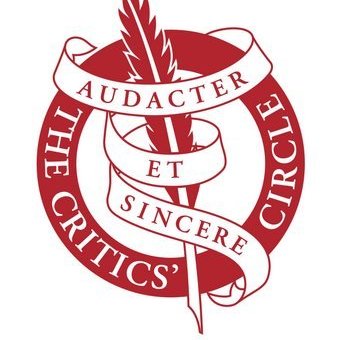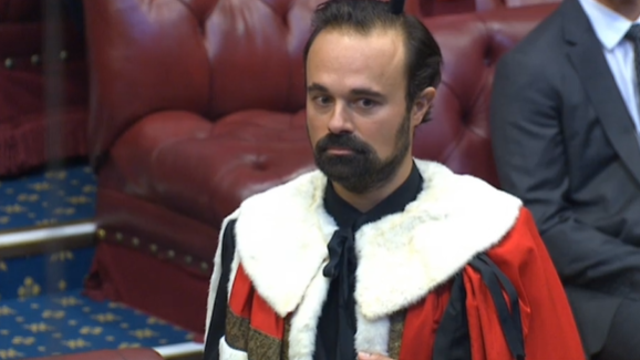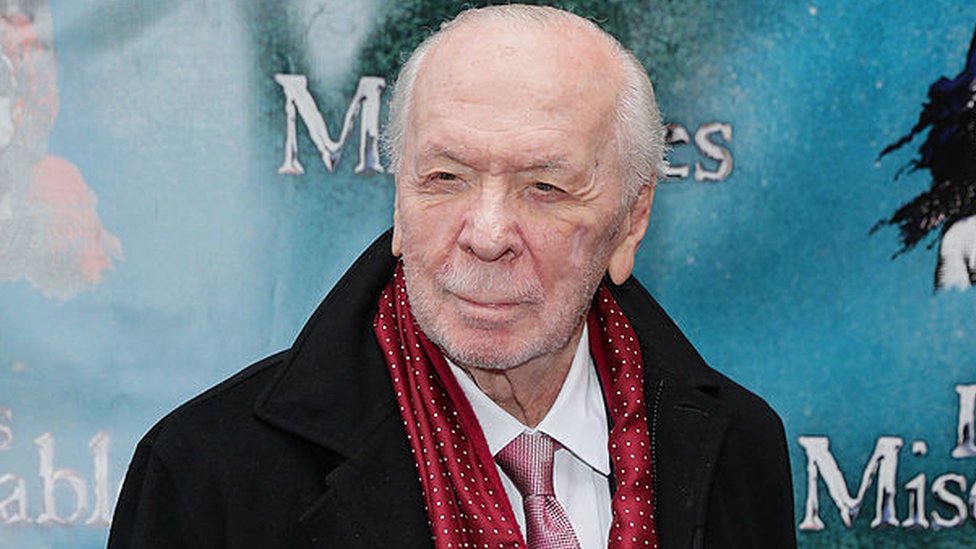(and saying farewell to three long-time members of the theatre section who died this year)

Earlier this month, I stepped down as President of the Critics Circle at the AGM, after previously serving for nearly a decade as chair of the drama section — so I’m at the end of my tenure, rather than the end of my tether, though there is a bit of that too!
I’ve seen some big changes in the critical landscape during this time, not least the dropping of all their critics by the Independent on Sunday in 2013, before the paper in both its daily and Sunday incarnations stopped printing altogether and became the first, but no doubt far from the last, British newspaper to migrate entirely online.
This was followed by the Sunday Telegraph also cancelling its separate arts coverage to the daily paper. And just last month, my own one-time critical home, the Sunday Express also laid off all its arts critics, including long-time circle members Clare Colvin, who covered opera, and Michael Arditti, who succeeded me on the theatre beat after my sudden departure seven years ago in circumstances that they thought would shame me but in fact only shamed them.

The Express group has, of course, since passed from the ownership of former porn baron Richard Desmond (pictured above with Boris Johnson on a fairground ride), a one-time UKIP supporter turned Tory donor who after sitting next to housing minister Robert Jenrick at a fund-raising dinner last November rushed through a planning application that he had in progress for a former printing works in Westferry, with Desmond sending him a text saying, ‘We don’t want to give Marxists loads of dough or nothing.’

As a result, Desmond was able to avoid a £45m community levy to Tower Hamlets council — the poorest borough in London — that would have become payable had not Jenrick intervened, and a fortnight after permission was granted, Desmond donated £12,000 to the Conservative party. (By notable contrast, Desmond — pictured above with Nigel Farage — donated £1million to UKIP’s 2015 election fund, so it’s also fair to say he got his £45m cost saving at a significant discount).
This is, of course, a long way from the naked hypocrisy, in every sense, of Desmond’s actions against me personally back in 2013, and far more consequential financially to Tower Hamlets than it was for me, but its part of the same story: the openly partisan and self-serving nature of our press barons and their relationship to power, which has this year seen former Evening Standard editor Veronica Wadley elevated to the House of Lords, after previously being a senior adviser to Boris Johnson during his tenure as the Mayor of London.

Also made a life peer was the Evening Standard’s owner Evgeny Lebedev (pictured above), son of a former Russian spy, and duly taking a seat in the House of Lords.
Meanwhile, the forever-shrinking Evening Standard — which currently resembles a pamphlet more than a newspaper — last year laid off its two long-term staff theatre critics, Henry Hitchings and Fiona Mountford, in a cost-cutting exercise, whom as Lyn Gardner noted at the time in an article for The Stage in June 2019, “Between them, notch up 27 years of experience, which means an accumulated level of knowledge and expertise that allows them to put shows in context.”
That remains the single best defence of the importance of experienced critics. This year also saw a changing of the guardians at the gates of theatre criticism at both The Guardian and The Times.


At The former, Britain’s longest-serving theatre critic of modern times Michael Billington — and a former President of this circle — retired after nearly fifty years there; he’s been replaced by Arifa Akbar, while at The Times, the new chief critic is Clive Davis. It is a welcome fact that after too long without a single person of colour occupying a major critical post on a national newspaper, we now have two (pictured above).
So not all change is negative. But this year we’ve also endured the single biggest crisis to hit the arts in any of our lifetimes, with the arrival of a global pandemic. This has put numerous arts organisations and individual artists in significant peril, particularly the army of freelancers who make up the largest part of its work force, many of whom have been entirely excluded from schemes to get government assistance of any kind.
At the same time, artists and producers have been nothing if not creative, and a vast expansion of digital offerings have grown, initially from the back filmed catalogue of past productions, with places like the National Theatre and Royal Opera House and people like Andrew Lloyd Webber offering weekly free access to past productions during the national lockdown. Some of this is here to stay now, with NT at Home just launched last week that will provide subscription or on-demand access to productions in its archive. And theatre companies and artists alike have become increasingly resourceful in generating original content for digital platforms, which is also likely to be here to stay, even post-pandemic, with its ability to reach a global audience and not a merely local or national one.
This has kept at least some critics busy writing in their fields, though of course we crave the return of being able to sit amongst real audiences watching live performance again. As news came recently of a rollout for vaccines, we can hope for a return to some semblance o normality, perhaps by next summer.
The Critics’ Circle and its members have weathered many a storm since it was founded in 1913, from two World Wars to the war on terrorism, the Great Depression to the Great Recession, and the Spanish Flu to Covid19. As I now hand over the reigns of the Presidency for the first time to Suzi Feay from our newest section, the books section founded in 2014, I look forward to the Circle continuing to advocate for the role of critics in an ever-changing world.
IN MEMORIAM
In 2020, we’ve lost three esteemed veteran members of the theatre section of the Critics’ Circle.

John Peter, or JP as he was almost universally known (pictured above), who died aged 81 on July 3, was the indefatigable chief theatre critic of the Sunday Times for 19 years, from 1984 to 2003 and who remained a regular contributor to its pages until 2010. His lasting legacy will be the creation of the Ian Charleson Award, run by the Sunday Times and National Theatre, which since 1990 has honoured classical performances by young actors under 30. He led it until 2017; amongst the award winners were Dominic West, Emma Fielding, Paapa Essiedu and Ruth Negga. He came to England as a Hungarian refugee, unable to speak a word of English but who within nine months had not only mastered the language but gained admission to study at Oxford University in the late 1950s. As Michael Billington, a long-time colleague and friend, wrote in an obituary for The Guardian, “my abiding memory of him is of someone whose adopted Englishness became like a second skin and who had a mercurial, even whimsical, sense of humour: he would always greet me with a sign of the cross, as if endowing me with a papal blessing.” He frequently bestowed the same blessing on me, and I will miss him.

Herbert Kretzmer, or Herbie as he was always known (pictured above), who died aged 95 on October 14, may just be the wealthiest critic who ever lived – not, I hasten to add, for his criticism, but for the fact that he provided the English lyrics for the global smash hit musical Les Miserables, now the longest running musical in West End history, a job he enlisted for at a time when he was actually television critic for the Daily Mail. Interestingly, he only got the Les Mis assignment after another sometime drama critic, the poet James Fenton who had been theatre critic of the Sunday Times before John Peter, had provided a translation of the original French musical but whose words were deemed unsingable. Herbie had a prior track record as a lyricist of popular song, having had a chart hit with the song She, written with and sung by French troubadour Charles Aznavour. Born, like me, in South Africa, I often felt a special affinity with him, not least because he, too, had worked as a theatre critic on the Express, albeit during a far more auspicious age than mine, when the title actually meant something more than stories on weather and/or the royals and Brexit; he was a feature writer and theatre critic on the Daily Express for some sixteen years from 1962.

Finally, Paul Callan — who died aged 81 on November 21 — was a one-time gossip writer from the mid-1960s, launching the Daily Mail’s diary page with a young Nigel Dempster who subsequently took over from him, who later migrated to the Daily Express, where he was a fixture from 1991 and where he ended his tenure there a few years ago as its theatre critic. When he attended his first night as a critic, it had been so long since he’d been that he turned up in black tie and asked one of my colleagues nervously whether it was still the done thing. He also had a sideline as a broadcaster, presenting a mid-morning show on LBC when it launched in 1973 with Janet Street-Porter, who once recalled, “Day in and day out, the morning was spent settling scores and trashing each other’s taste in everything from food to décor to music to fashion. The listeners were riveted.” He subsequently also presented a weekly interview show on Classic FM. In an obituary in the Daily Telegraph, he was dubbed “an unregenerate stand-out, amiable and gregarious, who disdained political correctness.” A colleague is quoted remembering, “He would get drunk when he shouldn’t, he goosed girls who didn’t want him to (but he would never take umbrage when they told him to push off) and he would behave outrageously when threatened.”
